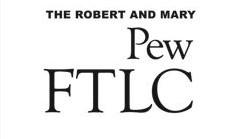Psychological Research on Student Learning: Basic Principles and Classroom Strategies
Session Location
Eberhard Center 515
Session Start Date and Time
24-8-2011 1:15 PM
Session End Date and Time
24-8-2011 2:15 PM
Session Abstract
For decades, psychologists have conducted research designed to understand and improve student learning. We discuss two areas of recent research that have direct applicability in classrooms. First, when students take tests as a study strategy, they show dramatic improvements in later retention compared to more traditional methods of studying. Second, when students prepare for class beforehand by completing on-line quizzes, they show improved performance on tests and grades earned for the course compared to other methods of class preparation.
Session Description
Psychology has always been a discipline that undertakes the challenge of understanding human learning. In recent years, research has addressed a number of principles about learning that have direct educational relevance. Basic principles of learning are useful in education because they typically apply to a broader range of circumstances than more detailed instructional programs or curricula. In this presentation, we will discuss two issues from Psychology that are relevant to classroom learning. Participants will get an introduction to the issues, some discussion of data that indicate learning effectiveness, and suggestions about how to implement these findings in classrooms. Discussion of practical suggestions will also be part of the session.
In the first part of the session, we will discuss the difference between studying and testing on students’ learning. Recent research has revealed a large, but also non-intuitive, benefit of testing students on their later retention of information. In the basic experimental set up, students are split in to two groups. One group studies some texts about unfamiliar topics, and then studies them again a second time. The second group studies the texts once, and then is tested by simply recalling from memory as much of the information as they can. Next, memory for the information is assessed, either after a short break (such as 10 minutes) or after a longer break (such as a week.) Results show that 10 minutes after the first session, students who studied and were not tested recall more of the information than those who studied and were tested. After a week break, however, there is a rather dramatic reversal in which students who studied and then were tested on the material remember much more of it than students who only studied. This basic result leads to the broad conclusion that testing students by having them retrieve information from memory leads to improvements in their ability to remember what they have learned as time passes. This phenomenon appears to be non-intuitive because after the study/test sessions, students also predict what their performance will be on the final test. The predictions of future performance are exactly backwards of students’ actual performance.
In the second part of the session, techniques implemented during the prior semester (W2011) in an actual class will be presented and discussed. This innovation required students to take brief online quizzes prior to class lecture/discussion on a given chapter or article. In addition, a pretest was administered the first week of class and this was used as a co-variate in the final analysis. The number of quizzes taken and the total number of quiz points earned were the predictors and the criterion was the total score earned on semester tests, independent of practice quizzes. After removing the individual difference factor of prior knowledge, analysis revealed that taking more quizzes AND scoring higher on the quizzes accounted for 50% of the total variance in test scores.
Psychological Research on Student Learning: Basic Principles and Classroom Strategies
Eberhard Center 515
For decades, psychologists have conducted research designed to understand and improve student learning. We discuss two areas of recent research that have direct applicability in classrooms. First, when students take tests as a study strategy, they show dramatic improvements in later retention compared to more traditional methods of studying. Second, when students prepare for class beforehand by completing on-line quizzes, they show improved performance on tests and grades earned for the course compared to other methods of class preparation.

